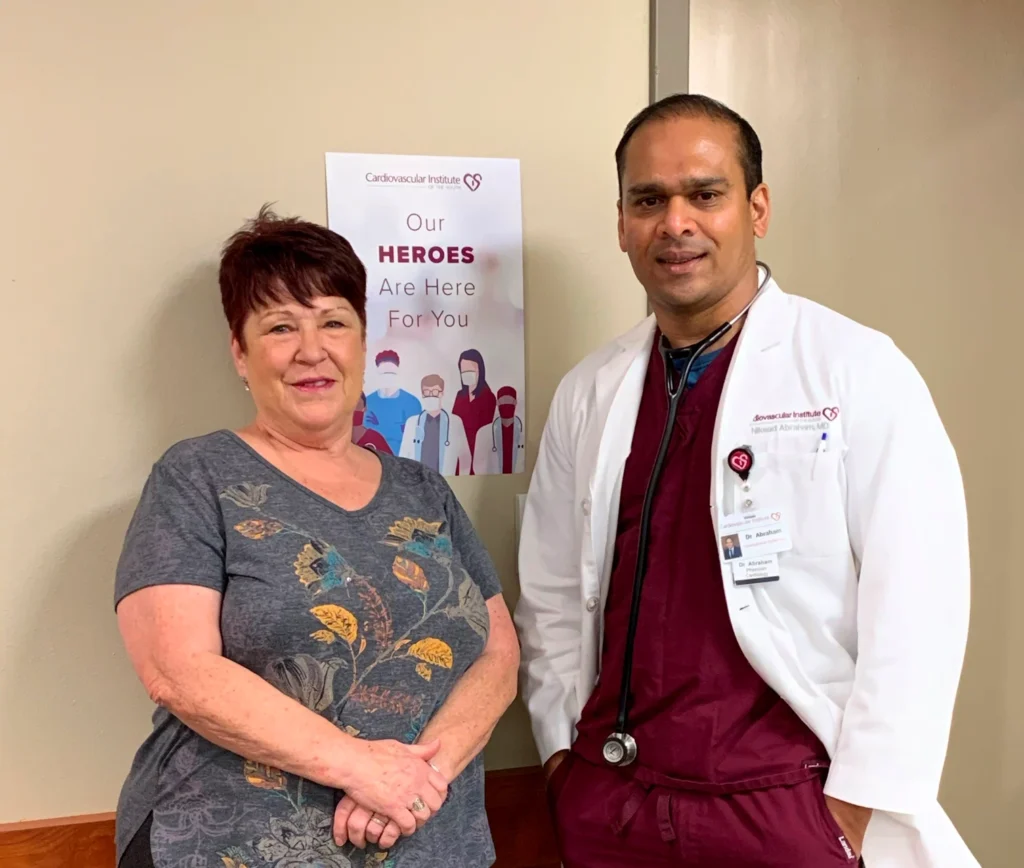Helen Miles of Maurepas, Louisiana was having difficulty doing simple tasks, such as walking up a flight of stairs and breathing comfortably. She said her legs felt heavy, and they were constantly swelling, hindering her from completing normal, daily tasks.
The symptoms Helen was experiencing were due to an inherited condition called hypertrophic cardiomyopathy (HCM), where parts of the heart muscle are abnormally thick. This thickness of the heart muscle makes it harder for the heart to pump blood throughout the body, causing symptoms such as shortness of breath, chest pain, fatigue, leg swelling, fainting, and abnormal heart rhythm or palpitations.
Medications can be used to relieve symptoms of hypertrophic cardiomyopathy. However depending on the case, an interventional procedure can be performed to treat the condition. To treat Helen’s symptoms, Dr. Niksad Abraham, interventional cardiologist at Cardiovascular Institute of the South, performed a non-surgical procedure called alcohol septal ablation at Our Lady of the Lake Hospital in Baton Rouge.
Alcohol septal ablation is a treatment for hypertrophic cardiomyopathy which creates a mild and controlled heart attack to reduce thickness of the heart muscle. Through the use of a catheter and balloon, a cardiologist injects alcohol into the area of the heart that is too thick, which in turn, thins the muscle. As a result, blood flow improves throughout the heart and into the body. This alleviates the complications and symptoms that result from the condition. Dr. Abraham explained, “This non-surgical procedure is ideal for patients who have persistent symptoms despite medical management. It has similar outcomes compared to surgical myectomy, which is an open heart procedure.”
Helen had a brief hospital stay after her procedure and a 6-8 week recovery period, which is crucial to ensure optimal recovery. “Since we induce a heart attack, the patient will experience a similar recovery,” said Dr. Abraham. “Post-procedure recovery includes plenty of rest, a low sodium diet, and light exercise.”
Helen now reports feeling much better overall. She no longer needs to take the three medications she was on previously. Her legs have stopped swelling, and she feels lighter and can breathe much easier. She is very pleased with the results.
To learn more about alcohol septal ablation or to schedule an appointment with Dr. Abraham, call 225-308-0247 or click below.
